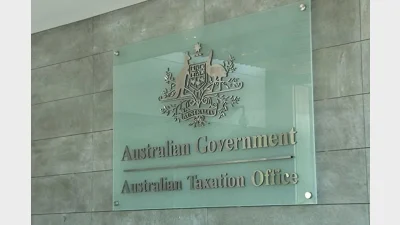(March-2003) Custody: we’ve come a long way
Custodians have come a long way and are now able to offer fund managers sophisticated products that are vastly different to those available three or four years ago.
Matthew Brown, State Street Investor Services director business development Asia Pacific, says: “Many organisations that considered outsourcing then would have only been offered accounts, custody and some performance reporting. Today the product range is a lot broader and goes much deeper into middle office, and in particular into areas of tax reporting and regulatory compliance.”
Over at JP Morgan Investor Services, head of sales and marketing Bryan Gray says there is now substance to back up the pledges being made to clients.
“In the past there was a lot more talk in the market than there was actual capability, but now the capabilities available are much more sophisticated.”
Gray says the services clients can expect as standard nowadays include daily unit pricing, tax and regulatory issues, financial accounting, unit registry and a host of other mostly administrative services.
Commonwealth Custodial Services (CCS) senior manager Rob Brown says the decision to outsource is one that needs to be continually reviewed.
“The main question facing managers is their assessment of what they consider core business.”
CCS’s Brown identifies two factors driving the move to outsource.
“On the supply side there has been an improvement in the capability of providers and on the demand side, managers are focusing on their core business of investing. So there’s push and pull,” he says.
He believes that outsourcing will suit all kinds of managers.
“The cost benefit for a small manager is enormous because they just can’t do it themselves. At the small end it’s a no brainer. It’s ‘outsource or don’t go into business’. When you get up to the medium or large sized end of the market it’s a more finely balanced economic proposition.”
According to State Street’s Brown, the decision to outsource is multi-faceted. It’s also not uncommon for a manager to approach the market more than once before reaching a decision.
“Culture is a big part on deciding whether to outsource. Cost is also a big component, as is the external pressure on a fund manager to meet its obligations to shareholders… Over a period of five to six years any organisation which chooses to outsource may assess its options a number of times, so it’s not uncommon for a fund manager to undergo two to three waves of due diligence over this period,” he says.
Cogent Investment Operations head of business development Brian Long says fund managers are approaching his organisation directly in order to “test the water”, without using consultants. “They’re trying to figure out if custodians have lifted their game in terms of the services they are offering,” he says.
National Custodial Services head of sales and marketing Richard Coia adds that when managers now request information, they are more thorough and inquisitive.
“In the old days a manager would ask us ‘how much?’ and we would say ‘how much for what?’ Now managers want to talk turkey and want to know how a service provider can fit in with their operations. It’s not just about price,” he says.
Coia estimates the costs savings from an average back office outsourcing arrangement to be in the region of 10 to 15 per cent, while CCS’s Brown is more conservative, but argues there are other less obvious benefits to be attained.
“If you work out the running costs over a 12 month period you may find that there isn’t a great deal of difference. What that doesn’t take into account though is the management distraction and the capital distraction of investing in all the infrastructure [if the manager remains in-house],” he says.
Gray notes: “Outsourcing initially does not offer a huge cost saving to managers but what it does offer is control over costs. You’re converting essentially what has been a fixed cost for an operation into a variable cost,” he says.
Recommended for you
The responsible investment body is warning that a one-size-fits-all ESG framework mirroring those in the UK and the EU could do more harm than good.
Australian super funds are monitoring the US closely as President Donald Trump increasingly intervenes in corporate policy, moves that are reverberating through global markets and prompting reassessments of portfolio risk.
Industry fund HESTA has filed an appeal against an ATO decision on tax offsets from franking credits, with the Australian Retirement Trust set to file a similar claim soon.
The latest superannuation performance test results have shown improvements, but four in 10 trustee-directed products continue to exhibit “significant investment underperformance”, warns APRA.











